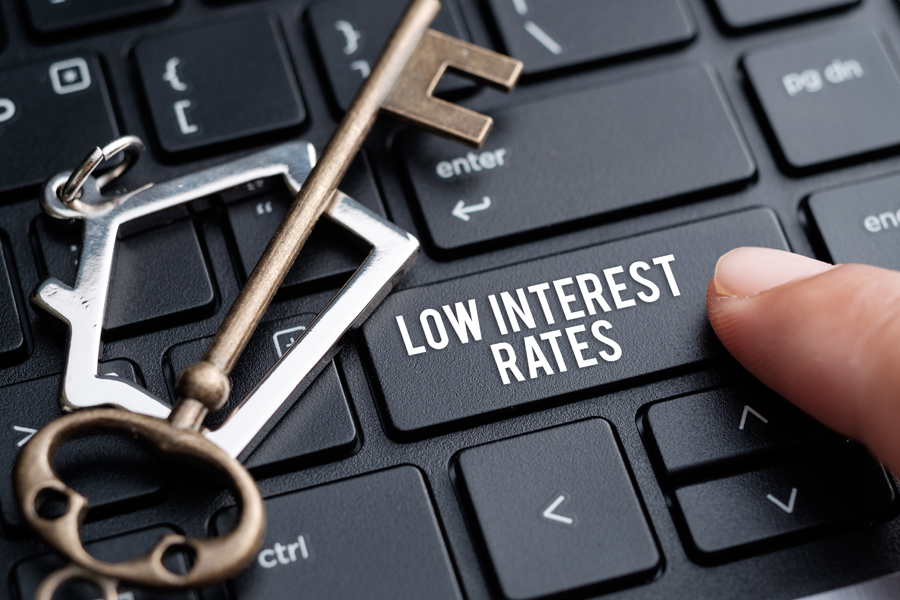
Pre Qualification vs. Pre Approval
Pre- Approval means your loan application has been taken through a rigorous procedure. Pre- approval saves you the time of looking at houses you can’t afford.
Pre- Qualification is only a loan agent’s opinion that you’ll be able to obtain financing. No verifications are made, so formal approval is not issued.
Pre- approved buyers are ahead in the home buying game. If you make an offer on a home and then apply for a loan instead of the other way around, you are at the mercy of the lender who now knows that you don’t have time to shop around.
A pre- approval letter from a lender will also give you an edge when multiple offers have been made on a house. Preapproved buyers generally close escrow more quickly, since most of the paperwork has already been taken care of.
Mortgage Overview
When considering your financing options, you’ll want to review many different things about the loans offered to you. In this next section you’ll find a basic overview of home loan features and the things you should consider as you shop for a lender or loan.
What kind of lender are you borrowing from?
Home loans are available to consumers from thrift institutions commercial banks, mortgage companies, credit unions and mortgage brokers.
A Mortgage Broker is unlike other lenders in that the broker does not lend money to you directly. A broker will help find you a lender and secure the terms of your arrangement.
Mortgage Broker vs. Traditional Lender
A Broker may have access to several lenders and therefore can offer you a wider selection of loan products and terms. He or she can help you shop for the best deal based on your circumstances. (A Broker is not obligated to find you the best deal possible, so be sure to ask questions.)
For their work, brokers are paid a fee in addition to the lender’s origination fees. Brokers set their own compensation, so you’ll need to ask anyone you speak to how their fees are determined.
What are the terms of the loan?
All the terms of a loan matter, not just the interest rate. You’ll want to get a complete picture and break down of what a given offer means to you on a monthly basis as well as how much money you’ll be spending over the life of the loan.
At a minimum, you should request quotes with a few different scenarios and compare the financial impact of each situation before you determine your best course of action.
Things To Keep In Mind
- Even if you decide to work with a traditional Lender, ask if a broker is involved. Many Financial institutions act as both lenders and brokers, so you should ask if a broker is involved on any loan you are offered.
- Ask your mortgage broker how their fees are assessed. Sometimes these fees may be negotiable.
Loan Type/Rate
Fixed Rate (Traditional) Loan
These loans are usually structured with repayment terms of 15, 20 or 30 years. The lender will agree to charge a fixed interest rate over the life of the loan. With this loan type, your monthly mortgage payments will remain the same for the length of the term.
Adjustable- Rate Loans (ARMs)
Also known as variable- rate loans, ARMs often offer a teaser rate for the initial period of the loan. This introductory interest rate is usually lower than rates offered for fixed rate mortgages. The interest rate will fluctuate over the life of the loan based on market conditions. Changes in rate happen at certain time periods, and the lender can set both a maximum and minimum on the rate of fluctuation.
Federal Housing Administration (FHA) Loans
Federal Housing Administration (FHA) insured loans are made by private lending intuitions such as banks, savings & loans, or mortgage companies to eligible borrowers for the purchase of a home. To secure an FHA loan, a borrower must apply and qualify with a certified FHA Lender. Additionally, eligible borrowers must be able to pay a minimum of 3.5% of a home’s purchase price. If the loan is approved, FHA will insure a portion of the loan’s value to the lender.
Veterans Administration (VA) Guaranteed Loans
VA Home loans are available to qualified Veterans and their spouses. Private lending institutions issue the loans which are in turn guaranteed by the Veteran’s Administration. The VA does not require any down payment on VA Guaranteed loans and allows the borrower to receive a competitive, fixed interest rate.
Points
The lender or broker can charge you points on your mortgage. One point equals 1 percent of the loan amount. These are simply fees paid to the lender or broker that are often linked to the interest rate, and are usually paid in cash to the lender or broker at closing. A lender may offer you a lower interest rate, but charge more points, so it’s important to compare offers.
Things To Keep In Mind
- You can ask your lending institution for a list of its current mortgage rates. You’ll want to ask your lender whether you’re being quoted the lowest rate for the day or week.
- If the rate quoted to you on a loan in an adjustable-rate, ask when and how your loan payment will vary.
- Ask what the loan’s Annual Percentage Rate (APR) is. The APR will express as a yearly rate all of the fees associated with a loan including the interest rate, points, broker fees and other credit charges you may be required to pay.
- For better understanding, ask your broker or lender to quote you a dollar amount – rather than just a number – on any points you are being charged on the loan.
- If you are satisfied with a proposed interest rate, you can ask your lender if he or she can lock-in the quoted rate. There may be a fee associated with locking in a rate and the agreement will generally only last 60 to 90 days.
What Additional Fees will be Required in this Loan?
Most loans have additional fees. You can sometimes borrow the money need to cover these fees, but that will obviously increase the overall amount of debt you undertake. Some fees are paid up front, and others are not due until closing.
Loan Origination Fees
The institution that actually loans you the money will generally charge on origination fee for processing the loan. They are often expressed as a percentage of the amount of the loan.
Underwriting Fees
Certain lenders will charge a fee to investigate your creditworthiness and determine if you are likely to repay your loan.
Broker Fees
Typically paid at closing, a mortgage broker may charge you a fee in addition to the origination fee. If you are working with a broker, be sure to check with them what their fee is.
Transaction / Settlement / Closing Costs
These fees lump together several charges for: application fees, title examination, abstract of title, title insurance, property survey fees, deed preparing fees, other mortgage fees and settlement documents, attorney fees, recording fees, notary fees, appraisal fees and credit report fees. The Real Estate Settlement Procedures Act requires that a lending institution provide a borrower with a good faith estimate of closing costs at the time of application. This estimate must list each expected cost as a range or as an exact amount where applicable.
Things To Keep In Mind
- Never hesitate to question a fee that you don’t understand. Your lender should give you a thorough explanation and make sure that you know what you’re paying for.
- Sometimes lenders lump fees together. You can ask for a break down in that lump.
- Certain fees, like the Brokers fee or the amount of Points assessed on a loan are negotiable. It never hurts to ask your lender if they can get you a better deal.
The Down Payment / Private Mortgage Insurance
The largest upfront cost in purchasing a home is the down payment. Most traditional lenders expect borrowers to put at least 20% of a loans total amount down. Borrowers who are unable to do so are required to purchase Private Mortgage Insurance (PMI). This insurance protects the lender in case of default by the borrower.
Things To Keep In Mind
Interview Questions for your Lender
- Be sure to get a clear indication of the down payment percentage
required by your lender. You will also want to know what kind of
documentation your lender requires to verify that you have funds for the
down payment.
. - If you are not able to put down the traditional 20% on your purchase and
Private Mortgage Insurance is required, ask your lender what the total cost
of the insurance will be, how much it will increase your monthly payment,
and how long you will be required to carry the insurance.
- What kind of loans do you offer?
- What kind of loan would you recommend for me?
- What are the advantages and disadvantages of this loan structure?
- What is the current mortgage interest rate?
- Is the rate quoted the lowest for that day or week?
- What is the Annual Percentage Rate (APR) of an offered loan?
- Is the loan rate adjustable or fixed?
- What are the Discount Points and Origination Fees?
- What are all the Costs?
- If the rate is adjustable, how will rate and loan payment vary?
- What are the Qualifying guidelines for this loan?
- What is the lender’s required down payment for this loan?
- What documents will need to be provided?
- What are the closing costs?
- Will the Lender Guarantee the Good Faith Estimate (GFE)?
- Does the lender offer a loan rate lock?
- Is there a fee for the rate lock.
Next… Let The Search Begin

